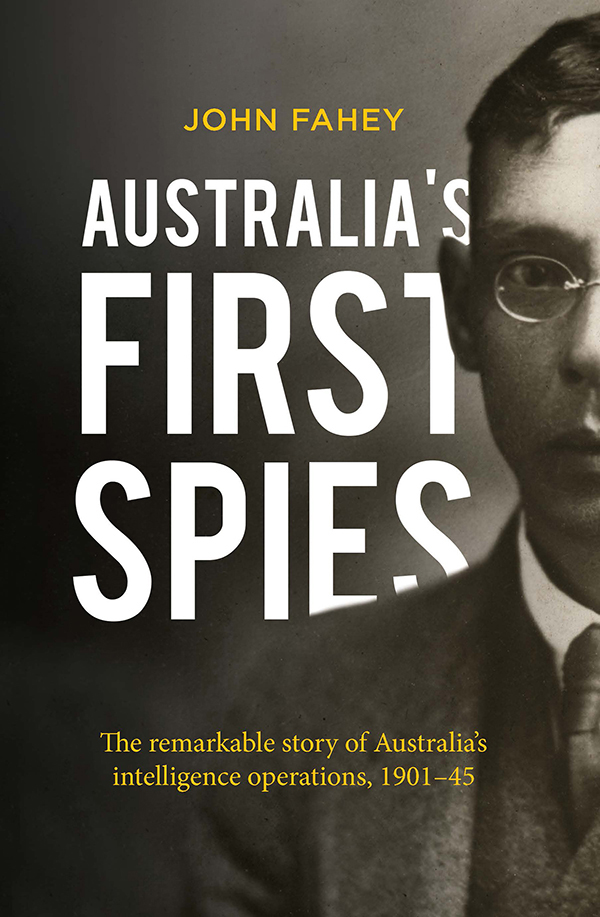This is a rather unsatisfying book. Perhaps the tone is set in the author’s preface where he states that he was a member of DSD (now ASD) in the 1980s, about 30 years ago, so he cannot tell what happened 75 years ago because it may affect what is happening now. This suggests a little boy telling his playmates that he has a secret but they are not allowed to know what it is. Even self-identifying as a past member of DSD is officially frowned upon.

Paperback 456pp RRP: $34.99
The author then goes on to tell us that the definition of spies is what he wants it to be, not what the public perception is. Thus, a spy is someone who only collects intelligence and covertly at that. I had hoped that we would hear about Z Force and other like activities but apparently these are anathema to our author. His spies should be protected from outside interference and heaven forbid that they should ever be used for other than reporting intelligence. Thus we have the situation in 1942 where escapees from Rabaul bumped into a coast watcher. The author castigates the higher authorities in Australia for using the coast watcher to help 400 men escape from certain Japanese captivity, if they got that far. The massacres in the plantations around Rabaul bear witness to that. Yet who would realistically expect the Coastwatcher to turn his back on them?
The tales of bravery of the various Coast Watchers and the dedication and hard work of the Sigint personnel described in the book are inspiring and well worth reading, but the author clearly has an axe to grind. He apparently uses 21st century hindsight to find fault with all authority in the intelligence community in Australia in the Second World War. He either fails to understand or willfully ignores the fact that virtually everyone was starting from scratch.
The interwar period, with it’s desire to avoid wars coupled with the government parsimony caused by the Great Depression meant little was available for even normal defence matters, let alone the murky and ill-defined aspect of intelligence and espionage. Most people regarded espionage as ‘not quite the done thing’. Remember this was the time when the USA closed the State Department code breaking office because ‘Gentlemen do not read other people’s mail”!
Even MI5 and MI6 were operating on the smell of an oily rag and had a paltry number of staff, far fewer than most people realise.
He devotes much space to the turf wars of the various Sigint groups – mainly US controlled and seems to find it ridiculous. Yet, even after two years of War, the UK was still trying to define responsibilities within the intelligence community. How much more for Australia where nearly everyone had been civilian mere months before! Expecting a fully-fledged intelligence organisation to spring up overnight is surely wishful thinking.
In the end, he simply stops at 1945 at the end of the War. One would have expected a summarising of how valuable the Coast Watch system was and also the achievements of the Sigint community. Was the effort worthwhile? Were the lives of numerous Coast Watchers given for nothing? What happened to them all, after the War? How many suffered PTSD and how many were decorated for their efforts. The book is silent.
Reviewed for RUSIV by Bob Hart, February 2019
Contact Royal United Services Institute about this article.






